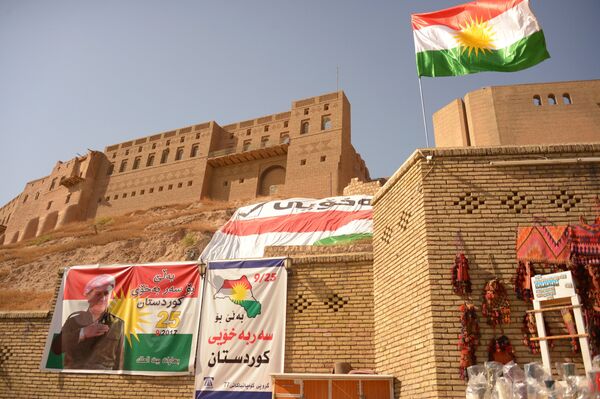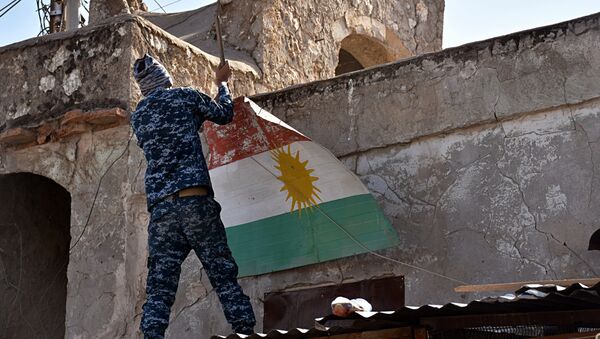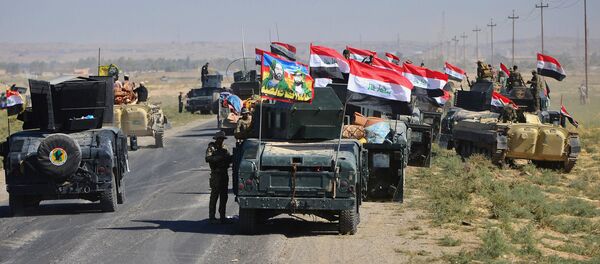Baghdad has refused to recognize the outcome of the September 25 referendum, in which more than 92% of voters voted in favor of independence. It has launched a military campaign which reasserted the central government's control over Kirkuk and other oil-rich northern Iraqi territories which Kurdish Peshmerga forces had wrested from the Daesh terror group.
On Wednesday, Erbil offered to "freeze the outcome of the referendum" to prevent "further war and confrontation" between Iraqi forces and the Peshmerga, the Iraqi Kurdish news agency Rudaw reported.
Sputnik: In your view, what's behind Erbil's latest offer?
Shlomo Brom: I think they understood in Kirkuk that they made a big miscalculation with the independence referendum and they are now facing a situation in which they are going to lose control of the oil, which they got used to. Trying to fight for independence without having some economic base is not realistic.
Sputnik: Where does it leave the issue of Kurdish independence? Will the region ever gain sovereignty in your opinion?
Shlomo Brom: I think it will be extremely difficult because all the states that surround the Kurds' area are against Kurdish independence. This goes for Iraq as well as Turkey, Iran and Syria. Erbil cannot gain independence without the agreement of at least one of them.
Sputnik: What are the chances that Baghdad would agree to talk with the Kurdish government? Would Iraq be engulfed in yet another longstanding conflict?
Shlomo Brom: I think that eventually the Iraqi government will be willing to talk with the Kurdistan Regional Government (KRG). I am not sure that the Kurds' wording of [their statement regarding] the Kurds not progressing [a push for independence] will be sufficient for the Iraqi government.

Maybe they would like stronger wording concerning giving up the idea of having independence now. And then I think there will be a dialogue between the two sides, because I don't think that any one of them is interested in returning to the old days of constant war between the government of Iraq and Kurdish insurgents.
Sputnik: Could Iraqi Kurds' try for independence mobilize other Kurdish minorities across the region in a push for achieving sovereignty?
Shlomo Brom: One of the main reasons for the loss of the Kirkuk region was the division among the Kurds. The Kurds are divided even in the KRG, the Kurdish region in Iraq and they are more divided when it concerns the other Kurdish areas. For example, I don't think the KRG government and the autonomous Kurdish region in Syria have a shared view of the situation. The Kurdish region in Syria sees itself becoming an autonomous region in Syria, and not as part of a Kurdish independent state.



